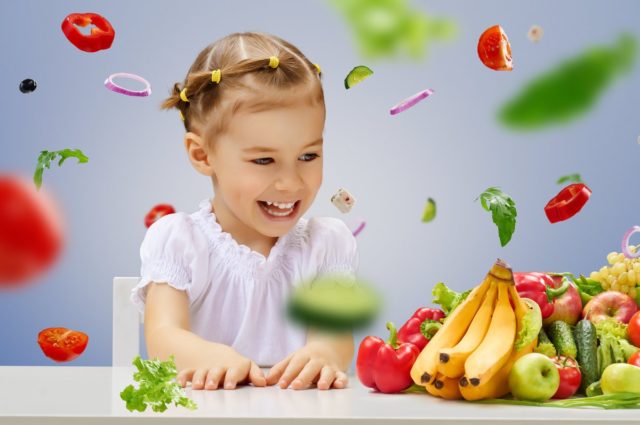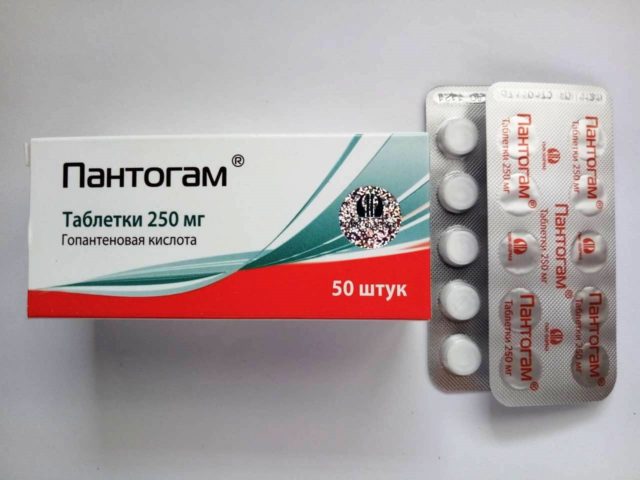Content
The acronym ADHD stands for Attention Deficit Hyperactivity Disorder. It is considered today an urgent, common problem for the parents of most modern children. Some people take this disease lightly. They believe that it is in fact exaggerated. However, all over the world, the number of children with such a diagnosis continues to increase rapidly, which, although it does not imply special treatment, still requires some correction. Proper nutrition and vitamins for hyperactive children will help the little person to change their behavior a little and lead a fulfilling life in adulthood.
Causes of hyperactivity in children
The reasons for increased physical activity in children are most often the following factors:
- heredity;
- severe pregnancy and non-compliance by the expectant mother with medical prescriptions, smoking, drinking alcohol during this period;
- brain damage in a child during childbirth;
- trauma, bruises of the baby's head during the first years of life;
- improper nutrition of children due to a large number of harmful, unnatural products, which is typical today, and, as a result, a lack of vitamins, trace elements and nutrients necessary for a growing body.
According to statistics, hyperactive children grow up in parents who also suffered from increased motor activity at an early age. Such a problem often arises in the case of an abnormally proceeding pregnancy, in pathologies, when the expectant mother does not follow medical recommendations, which leads to oxygen starvation of the fetus. During the first 12 years of life, head injuries and bruises, even the slightest, pose a great danger. During this period, it is necessary to strictly monitor children and similar situations for timely access to a doctor. The rapid increase in the number of patients with such a syndrome is provoked by unhealthy diet and bad foods that are now on the table.

This fact has been confirmed by scientists - it is the lack of vitamins and nutrients, micro and macro elements, amino acids that are necessary for a growing body that leads to problems. Almost all of them are involved in metabolism, development and growth processes, and a deficiency of vital components leads to serious disorders of brain activity, adversely affects the nervous system.
It happens that hyperactivity in children develops due to frequent and prolonged use of antibiotics, which leads to the growth of yeast bacteria in the intestines. In this case, only the restoration of microflora by introducing fermented milk products and special pharmaceutical preparations into the diet will eliminate the problem.
Signs of hyperactivity in a child
Hyperactive children are always in sight. They can be easily distinguished by the following behavioral traits:
- restless, aimless movements, which manifest themselves in constant spinning, twisting, touching all nearby objects;
- the inability to even sit still for a while;
- inability to engage in quiet, calm games;
- excessive talkativeness;
- difficulty concentrating;
- constant forgetfulness, negligence;
- difficulties in the independent organization of assignments, lessons;
- negligence;
- in distraction by extraneous factors.
In other words, hyperactive children are very inattentive, impulsive, and this begins to manifest itself especially clearly at school age. They are emotional and unable to control themselves - they can be extremely whiny, annoyed, or, conversely, too cheerful, cheerful. In the classroom, these guys shout from their seats, they cannot wait for their turn.

What vitamins are needed for hyperactive children
Deficiency of certain vitamins and trace elements in children leads to the development of hyperactivity, enhances its characteristic signs. And, conversely, correction of the diet with an emphasis on nutrients will improve brain activity and neutralize negative chemical processes in it. Overactive children especially need B vitamins:
- thiamine (B1) - for optimal carbohydrate metabolism;
- riboflavin (B2) - a necessary vitamin for the exchange of all nutrients - proteins, fats and carbohydrates, as well as for the growth of a young body;
- a nicotinic acid - participates in the work of the vital digestive organs of the liver, pancreas;
- pyridoxine (B6) - has a beneficial effect on the nervous system;
- cyanobacalamin (B12) - an irreplaceable vitamin that is involved in all internal processes in the body.
In addition to the B vitamins, hyperactive children need magnesium. It is his lack in the body that entails constant anxiety and nervousness, including during sleep.
Healthy foods for hyperactive children
Based on the needs of a rapidly growing body for B vitamins, it is possible to single out especially useful foods for hyperactive children. It:
- legumes and cereals;
- kvass;
- chicken eggs;
- milk products;
- pork meat, heart and liver;
- poultry meat;
- rice;
- corn and wheat germ.
Properly organized nutritional therapy for hyperactivity allows children to lead a normal life, study successfully and easily focus on their lessons. Mainly the diet should consist of fresh vegetables and salads, rich in vitamins and minerals. It is best to fill them with cold-pressed vegetable oils. Baking, bread should be made from wholemeal flour.
Recommended foods for children with hyperactivity disorder:
- red cabbage, cauliflower and white cabbage, green peas, carrots, cucumbers, spinach, broccoli, beans and soybeans, lettuce;
- pears, bananas, apples;
- rice, durum wheat pasta, potatoes;
- a fish;
- beef, poultry, pork and lamb (no more than 2 times a week);
- Whole grain breads and wholemeal baked goods
- dairy and fermented milk products;
- iodized salt;
- any nuts and seeds.

From the diet of hyperactive children, sugary carbonated drinks, chips, chocolate, as well as all foods containing preservatives are excluded. Junk food and a large amount of sweets deplete the body's magnesium stores, which ensures the breakdown of glucose. Since, in addition to vitamins B, children need magnesium, seeds and nuts must be present in the diet, which are leaders among food products in terms of the content of this microelement. All substances necessary for a rapidly growing organism, including B vitamins and others, are present in dairy and meat products and, of course, in vegetables and fruits.The main thing is that they must be natural, fresh and environmentally friendly.
Foods with a high content of Omega 3 have a positive effect on the condition of hyperactive children. These are fish, especially seafood, seafood. Fish oil can also be given with the agreement of your doctor. Although most pharmacy vitamin complexes contain Omega 3 fatty acids.
It is the food additives and preservatives that are rich in products from the counters of modern stores that negatively affect the neurochemical processes in the brain.
Vitamin complexes for hyperactive children
Vitamins for hyperactive children can only be prescribed by a doctor who will take into account all the factors of the disease and the age of the little patient. Most often, experts recommend the following drugs:
- sedatives (from 2 years old) - Citral, Pantogam, they reduce motor activity and muscle tone, provide restful sleep, have a beneficial effect on the nervous system;

- sedatives (from 3 years old) - Tenoten, Bayu-byu, Persen - allow the child to concentrate, focus, relieve symptoms of anxiety, excessive emotionality.

A complex of B vitamins will not harm an overactive child. However, you should consult your pediatrician before taking it. They are especially necessary at school age, since excessive physical activity and anxiety negatively affect learning. At this time, children experience severe emotional stress, and without the intake of useful components in the body, the situation with increased activity will only worsen. Most sedative vitamin complexes relieve nervous tension, improve memory and normalize sleep.
Conclusion
Vitamins for hyperactive children, as well as proper balanced nutrition is the best way to normalize the behavior of a little person, teach him concentration and attentiveness. Even if the restless state of the baby is caused by birth or postpartum trauma, well-chosen medications and a diet rich in the necessary components will have a beneficial effect on brain activity and improve the quality of life not only for him, but also for his parents.

